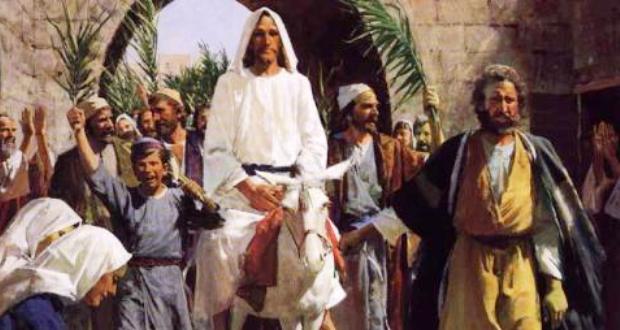Rend Your Hearts Not Your Garments – Pope Francis On Ash Wednesday

[simpleazon-image align=”right” asin=”1612787673″ locale=”us” height=”375″ src=”http://ecx.images-amazon.com/images/I/41T-pK75zEL.jpg” width=”234″]Below is an English translation of the Pope’s homily from the Ash Wednesday celebration of the Eucharist in the Basilica of Saint Sabina.
“Rend your hearts and not your garments” (Joel 2:13).
With these permeating words of the prophet Joel, the liturgy introduces us today into Lent, suggesting the feature of this time of elegance to be the sale of heart. The prophetic allure makes up a challenge for us all, no person omitted, and reminds us that conversion is not reduced to exterior types or unclear resolutions, however it entails and improves the whole of presence, from the facility of the person, from the conscience. We are invited to undertake a journey where, challenging regular, we compel ourselves to open our eyes and ears, but specifically our heart, to exceed our “little vegetable yard.”.
To Be Open to God and to Brothers. We reside in an ever before more synthetic globe, in a society of “doing,” of the “valuable,” where without seeing it we omit God from our horizon. Lent calls us to “rouse ourselves,” to remind ourselves that we are creatures, that we are not God.
And we likewise risk closing ourselves to others, neglecting them. However, only when the troubles and the sufferings of our brothers draw us in, only then could we start our trip of conversion toward Easter. It is a quest that includes the cross and renunciation. Today’s Gospel points out the elements of this spiritual journey: prayer, fasting and alms-giving (Matthew 6:1 -6.16 -18). All three call for the need not to permit oneself to be controlled by things that appear: what counts is not look; the worth of life does not depend upon the authorization of others or on success, but on what we have within.
[simpleazon-image align=”right” asin=”B005J6U77Q” locale=”us” height=”234″ src=”http://ecx.images-amazon.com/images/I/51OPy15m0iL.jpg” width=”234″]The very first component is prayer. Prayer is the durability of a Christian and of every thinking person. In the disadvantage and delicacy of our life, we can count on God with the self-confidence of children and participate in communion with Him. In face of numerous wounds that do us damage and that might set our heart, we are called to plunge ourselves into the sea of prayer, which is the sea of the limitless passion of God, to cherish His tenderness. Lent is a time of prayer, of a more intense, a lot more assiduous prayer, even more able to organize the requirements of brothers, to intercede just before God for many circumstances of poverty and suffering.
The 2nd qualifying component of the Lenten quest is fasting. We must pay attention not to engage in a formal fasting, which truthfully “satisfies” us given that it makes us really feel excellent. Fasting makes good sense if it genuinely breaks our security, as well as if it gets a perk for others, if it assists us to cultivate the style of the Good Samaritan, which bends over his brother in trouble and cares for him. Fasting involves the option of a sober life, which does not waste, which does not “discard.” Fasting aids us to educate the heart to the crucial and to sharing. It is a sign of recognition and of obligation in face of injustices, misuse of energy, especially in transactions with the bad and youngsters, and is a sign of the trust that we put in God and in His providence.
The third aspect is alms-giving: it indicates gratuitousness, since alms are given to a person from whom we do not anticipate to obtain anything in return. Gratuitousness has to be one of the attributes of a Christian, who, knowledgeable about having actually received everything openly from God, specifically, without any benefit, finds out to offer to others gratuitously. Today gratuity usually is not part of life, where everything is offered and gotten. Everything is determined and measured. Alms assist us to live the gratuity of present, which is liberty from the fixation of possession, from anxiety of shedding just what one has, from the despair of the one that does not want to share with the various other his very own well being.
With its invitations to sale, Lent comes providentially to awaken us, to shake us from torpor, from the risk of not going forward out of inertia. The exhortation that the Lord addresses to us via the prophet Joel is solid and clear: “return to me with all your heart” (Joel 2:12). Why do we need to go back to God? Considering that there are things that are not well in us, in society, in the Church and we are in need of altering, of transforming, of being converted! Once more Lent pertains to address its prophetic appeal, to remind us that it is possible to discover something brand-new in ourselves and around us, simply since God is faithful, He continues to be abundant in goodness and mercy, and is always prepared to forgive and start over again. With this filial trust, permit us begin our journey!






